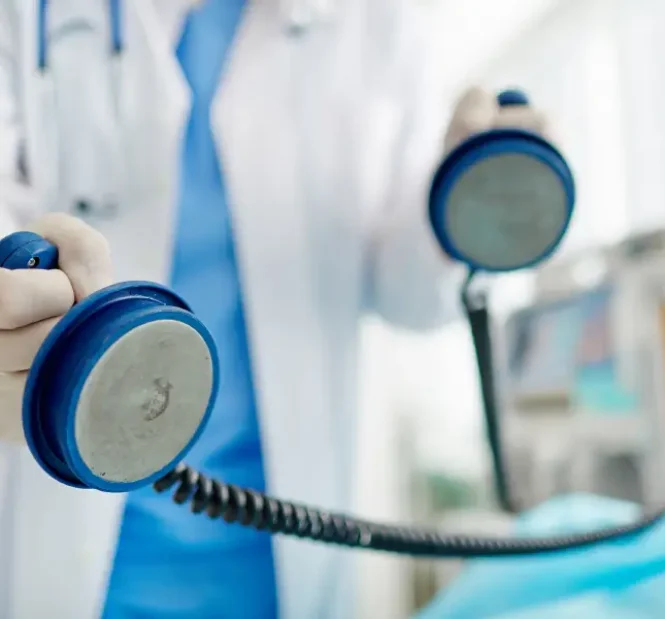Emergency Care
The emergency department or emergency room within a hospital plays a pivotal role in responding to patients coming in with health crisis situations that may need immediate medical or surgical intervention.
Emergency Services
The unit constitutes emergency paramedics, ambulance drivers, a senior physician who is in charge of the unit, highly-skilled doctors and nurses trained in trauma care and other support staff.
The emergency care doctors and paramedics have Advanced Cardiovascular Life Support (ACLS) certification, which means that they are able to handle life-threatening cardiovascular conditions, and can recognise and effectively treat cardiac arrest and stroke.
Advanced Cardiovascular Life Support (ACLS) is a training programme that equips medical professionals to deal with cardiovascular emergencies and resuscitation technique.
A fleet of six ambulances, driven by trained drivers, are available to 24/7.
Our emergency paramedics, who accompany the ambulance driver to the site of the crisis, are proficient in stabilising patients and transferring them to our hospital.
The department in equipped with three crash cots and two holding area beds, in addition to all necessary equipments for emergency resuscitation including an Automated External Defibrillator (AED).
This is an advanced device used to revive emergency patients who suffer cardiac arrest, by giving them an electric shock(defibrillation) to regularise the heart’s rhythm.

<span style="color:#FFF;"Medical Issues
Treated
Heart Attack
Industrial Injury
Organ Transplant
Stroke
Obstetrics & Gynaecology
Intensive Care Therapy
Trauma Road
Any acute medical or Surgical emergencies

About
Emergency Care
The emergency department or emergency room within a hospital plays a pivotal role in responding to patients coming in with health crisis situations that may need immediate medical or surgical intervention.
Quick thinking and urgent care are the loadstones of emergency services.
With their swift response and effective handling of difficult situations, the staff in the emergency department can make the difference between life and death for a patient.
The emergency unit at Hindu Mission Hospital (HMH) has state-of-the-art equipments and highly trained emergency staff to provide immediate care to patients.
It has all the modern facilities which allow members of the local community to seek the hospital’s help during any crisis situation.
Signs to look out for
Emergency
Breathing
difficulties
Severe bleeding from any part
of the body
Pain and discomfort in the chest
and shoulder region
Continuous diarrhoea and
vomiting
Dizziness and sudden
fainting spells
Sudden and unexplained pain in
the head, neck or abdomen.
Signs to look out for
Emergency
Breathing difficulties
Severe bleeding from any part of the body
Pain and discomfort in the chest and shoulder region
Continuous diarrhoea and vomiting
Sudden and unexplained pain in the head, neck or abdomen.


